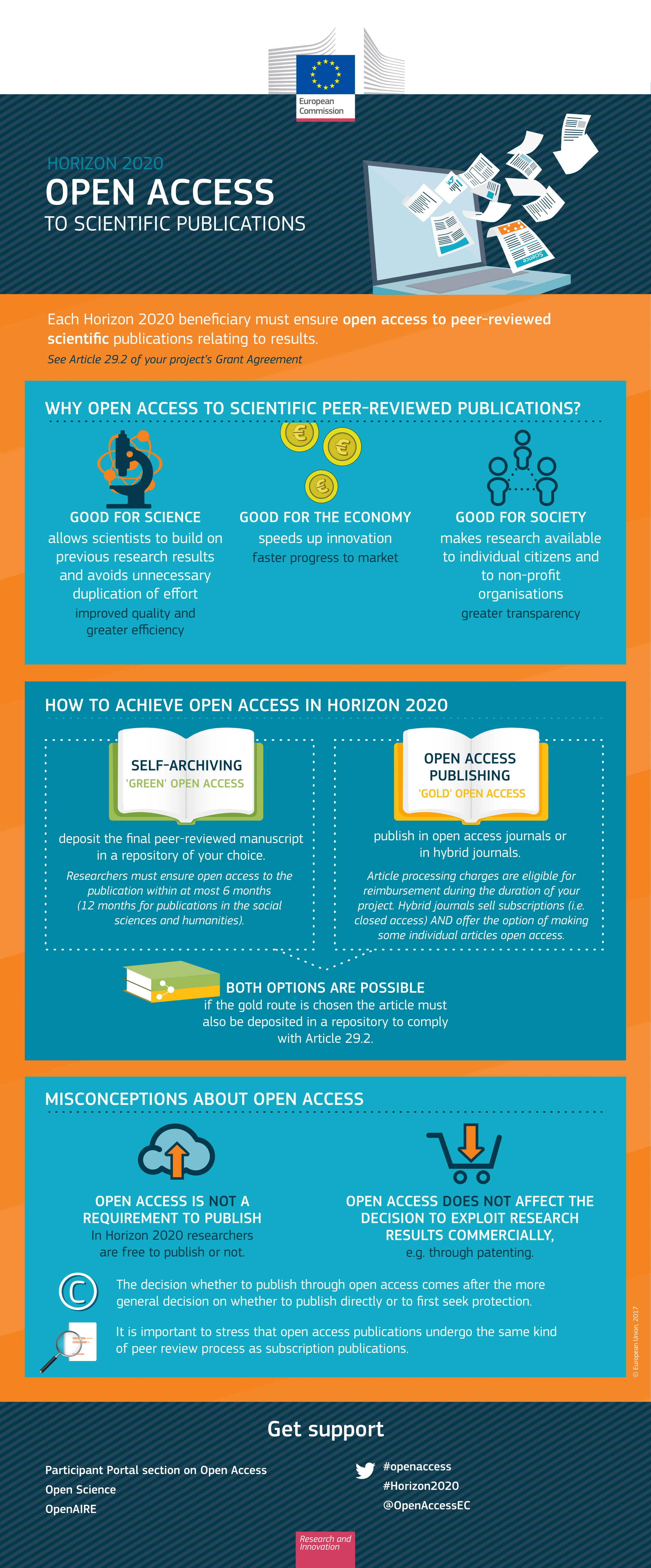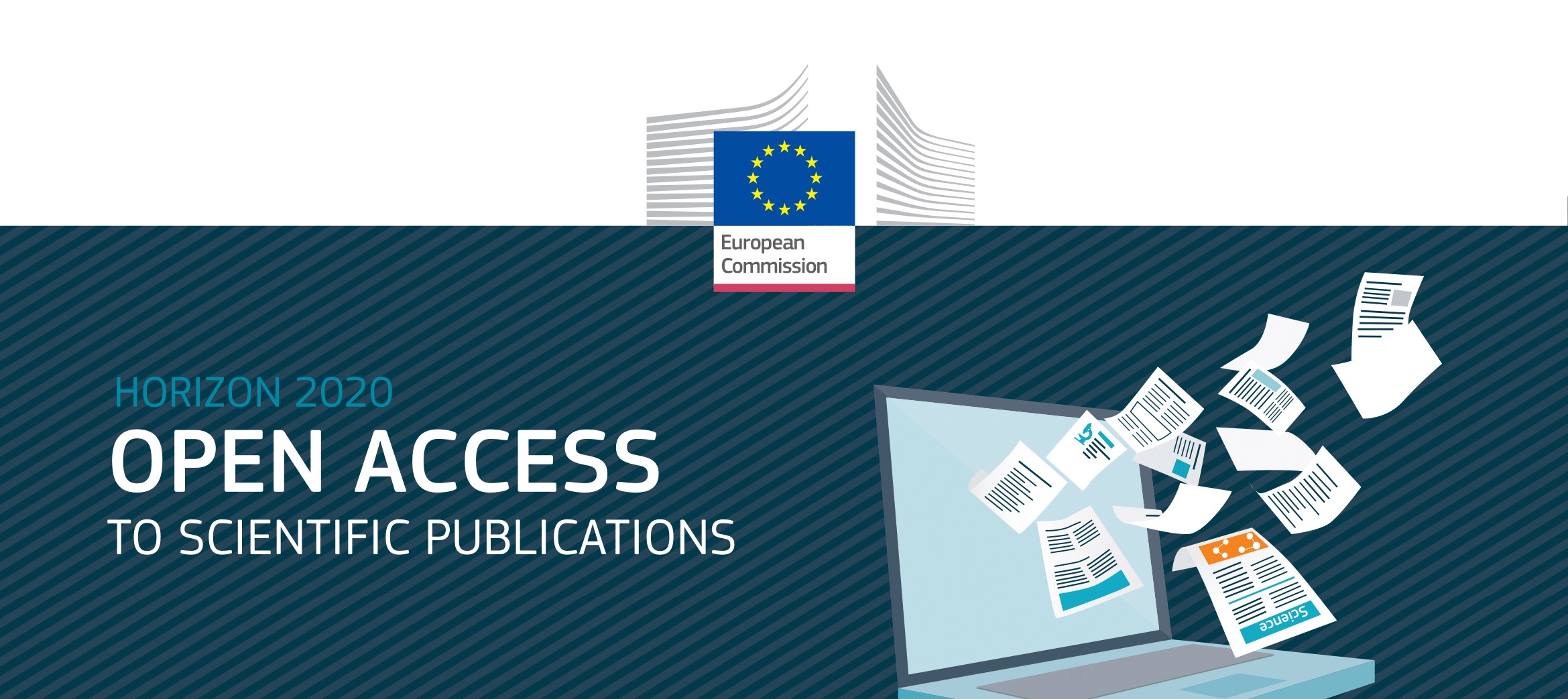The open access to publications obligations in Horizon 2020
Recently, Mr. Robert-Jan Smits, Director-General of DG for Research and Innovation of the European Commission, published an open letter and sent it to all Horizon 2020 participants about the open access to publications obligations in Horizon 2020.
He is pointing to the fact that scientific publications produced with public funding is beneficial for everybody. Not only for science but also for speeding up the innovation process and for involving citizens and society. According to article 29.2 of the Model Grant Agreement, each participant must ensure open access to all peer-reviewed scientific publications relating to their results.
For this purpose, the European Commission proposes two solutions:
- Self-archiving: (also referred as “green” open access), meaning that a published article or the final peer-reviewed manuscript is archived (deposited) in an online repository before, alongside or after its publication. If this route is chosen, beneficiaries must ensure open access to the publication within a maximum of six month (twelve months for publications in the area of social sciences and humanities).
- Open access publishing (also referred as “gold” open access), means that an article is immediately placed in open access mode (on the published/journal website). Publishers often charge so called Article Processing charges to make articles open. Such costs are eligible for reimbursement during the lifetime of the project as part of the overall project budget. For gold open access publishing, open access must be granted at the latest on the date of publication. A copy should be at the same time be deposited in a repository.
According to the European Commission, 68% of the publications produced with Horizon 2020 funding are open access, the majority through the green route. However, the goal is to reach 100% of open access by 2020.
The entire communication from Mr. Robert-Jan Smits can be read online on the EC website.
More information about open access is also available on the Participant Portal.


